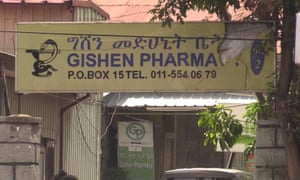A group of unmarried adolescent girls participating in the Integrated Programme on Prevention of Child Marriage and FGM. © UNFPA Ethiopia / Abraham Gelaw
AFAMBO, Afar Region, Ethiopia – Fatuma Ahmed was married off when she was just 13 years old, in 2011. Like most girls from the remote Afar Region of Ethiopia, she had undergone
female genital mutilation(FGM) when she was only a baby, and it was expected that her scars would open up during her wedding night.
Unusually, they did not open. Then she became pregnant. When she delivered her baby, the scar tissue had to be cut open – an excruciating experience that continues to haunt her.
Fatuma also suffered complications after the birth, a dangerous time for any new mother, especially for girls who endure pregnancy before their bodies are ready for it. To make matters worse, her husband deserted her.
Yet she refused to despair. She raised her daughter as a single mom and, with the support of her parents, continued her education. She has now completed eighth grade – not an easy feat, given her situation. And her resolve has strengthened thanks to a girls’ empowerment programme that started in her area almost four years ago.
It is the determination of the new generation, like Fatuma, and the commitment of partners in the effort to end these harmful practices that will eventually consign them to history.
Fighting child marriage and FGM in Afambo
Mohammed Dilani is Head of the Afambo District Justice Office. He is coordinating the legal aspects of an integrated programme on the prevention of
child marriage and
female genital mutilation (FGM) in the district.
The programme, which is being supported by UNFPA through funding from the UN Association in Sweden, is approaching its fourth year of implementation in the Afar Region. Almost US$800,000 has been made available thus far for implementing the programme.
The Afambo District Women and Children’s Affairs Office is coordinating the intervention with a committee made up of representatives from the district administration, religious and clan leaders, school administrations and parent-teacher associations. This collaboration is replicated at the community level, at which influential people including traditional birth attendants, ex-circumcisers (FGM related), and Health Extension Workers (community health workers) are involved.
In remote and rural regions such as Afar, infringements against the
rights of girls are still ongoing, Mr. Dilani says. Here, communities rely on traditional arbitration and conflict resolution methods, with many cases being settled outside the court system.
The Afar Region has not yet adopted a Family Law suited to the realities of the region, though efforts are underway. This is why it is difficult to press charges against the perpetrators of
child marriage. Law enforcement bodies that have attempted to use the Federal Family Law to breach this gap are being challenged, with those opposed saying it does not reflect the cultural and religious conditions of the Afar Region.
When it comes to FGM, there are religious leaders who assert that Sunna – the clipping of the clitoris – should be tolerated as an alternative ritual to the more severe forms of FGM. But the region’s penal code prohibits FGM in all forms.
In an effort to raise awareness in communities about provisions of the law relating to child marriage, FGM, and
gender-based violence, and the legal consequences for violations, legal literacy is conducted from time to time in each locality that implements the programme. This initiative is being overseen by a ‘Justice Coalition’ – composed of the Justice Office, the Women and Children’s Affairs Office, the courts, the police, security officials and the District Prosecutor’s Office.
“We provide legal literacy orientation twice a year on the basis of an annual work plan we developed,” says Mr. Dilani.
The legal literacy initiative helps reinforce awareness that child marriage and FGM as practices are universally not acceptable and that they are against the law, as they infringe on the
human rights of girls.
Thanks to the legal literacy initiative, communities are increasingly accepting that child marriage and FGM are legal violations. More reports of cases are being brought to the attention of law enforcement bodies as a result. “We are filing charges in court to deal with perpetrators,” says Mr. Dilani.
The significant progress on integrated abandonment of child marriage and FGM becomes clear when seen against the backdrop of the deep-rooted customs and traditions amid which they are being implemented.
Three areas where the programme is being implemented in the Afambo District have recently declared publicly their abandonment of the two harmful practices. The programme has also been scaled up to the district of Abala, where it is being implemented in 13 areas.
“The task is onerous but change is surely coming,” says Mr. Dilani. This adds to his determination to keep on with the task at hand.
Read more here
By Abraham Gelaw


